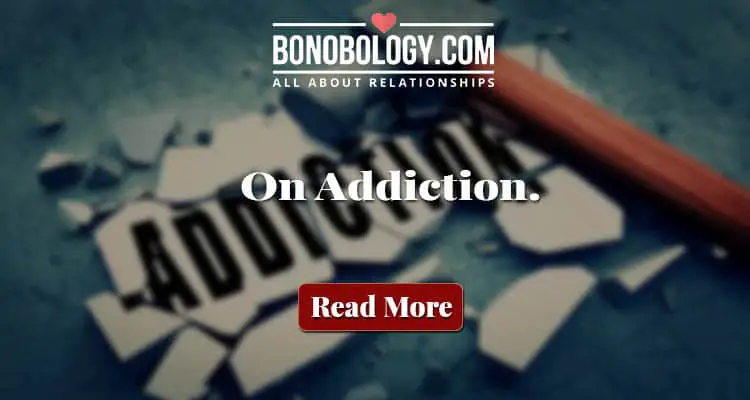The Role Of Supportive Relationships In Addiction Recovery

Addiction recovery is a challenging journey, marked by high relapse rates that can be disheartening for both the individual and their loved ones. One critical factor that can significantly enhance the likelihood of sustained recovery is the presence of supportive relationships.
In this article, we’ll delve into the different kinds of supportive connections that can make a substantial impact. From the emotional anchor provided by family to the professional guidance of therapists, each form of support serves a unique purpose. By understanding the role these relationships play, we can better navigate the complex landscape of addiction recovery.
Importance Of Support In Recovery
Achieving and maintaining sobriety is often an uphill battle. Emotional strength plays an indispensable role in this journey, and it’s here that supportive relationships truly shine. They offer a compassionate space where one can vent, seek guidance, or simply find a listening ear. Many who have completed programs, such as those at Scottsdale drug rehab, attribute a part of their success to the emotional bolstering from loved ones.
Accountability is another cornerstone in the architecture of recovery. Having an accountability partner does more than keep you in check. They also give you a sense of responsibility toward someone who believes in you. Knowing that someone will ask about your day can motivate you to make decisions that align with your addiction recovery goals.
Peer influence isn’t always about leading you astray; it can also be a powerful force for good. Positive peer pressure, particularly from those who are also on a path to recovery, can be incredibly uplifting. When you see someone close to you making strides, it fuels your own desire to succeed, creating a supportive cycle that benefits everyone involved.
Related Reading: 8 Ways You Can Help Your Partner Get Over Drug Addiction
Types Of Supportive Relationships
Navigating the path to sobriety involves various kinds of support. This section explores how different relationships can positively impact your journey to wellness.
1. Family support
Your family can be the emotional backbone of your recovery. They offer unconditional love and a safe space to be yourself. When the road gets tough, this emotional stability can be a lifeline. However, love doesn’t mean a lack of boundaries. Family can employ ‘tough love’ to keep you on the right path. They set rules and expectations that guide your recovery.
2. Friends and peer support
Friends contribute to your recovery in their own unique ways. Through positive reinforcement, they celebrate your small victories. This boosts your self-esteem and encourages you to press on. Friends also introduce you to sober social activities. These offer an alternative to past triggers and set the stage for healthy fun.
3. Professional support
Therapists offer emotional and psychological assistance. They equip you with coping mechanisms and strategies to maintain sobriety. Recovery coaches also play a crucial role. They guide you through the recovery process and help bridge the gap between therapy and daily life. Their expertise is often a game-changer in maintaining long-term sobriety.
Related Reading: 10 Signs You Are Dating An Alcoholic And 5 Things You Can Do
4. Online communities
Online support groups are accessible 24/7. Whenever you need help or advice, they’re just a click away. Anonymity is another aspect of online communities. This can be both a blessing and a curse. While it allows freedom to express, anonymity can also lead to less accountability.
The right connections can make a world of difference in your recovery process. Leveraging these varied forms of support will enrich your path to lasting wellness.
Challenges In Finding Support
Finding the right support network for addiction recovery is often easier said than done. One major obstacle is the lingering societal stigma that still surrounds addiction. This weighty stigma can create a wall of silence. It makes individuals reluctant to seek help, fearing judgment or exclusion. Loved ones, too, may pull away, unsure how to deal with the stigma or cope with the emotional toll of your struggle.
Another significant challenge lies in the potential for overdependence on support networks. While the emotional and logistical backing is invaluable, leaning too heavily on it can be problematic. Overreliance on support can hamper your personal growth by diminishing your ability to make independent choices. It also puts an emotional toll on the supporter, which may strain the relationship and even lead to its breakdown.
To address these challenges, a nuanced approach is crucial. Stigma must be combated through education and open dialogue. Steps should be taken to establish healthy boundaries and promote personal accountability to prevent over-dependence. Tackling these obstacles will better equip you for a healthy and enduring recovery journey.
Supportive relationships are invaluable assets in the demanding but rewarding process of addiction recovery. However, it’s crucial to remember that while these connections fortify your efforts, they don’t replace the necessity of professional treatment.
Reach out for the support that resonates with you and don’t hesitate to lend that helping hand to someone else. Together, we can make the road to recovery less daunting and more hopeful for everyone involved.
In Love With An Alcoholic? 8 Things You Need To Know
How To Deal With A Drug Addict Husband? 5 Ways To Handle Your Partner!
10 Ways To Get Your Husband To Quit Smoking





order lasuna – himcolin brand buy himcolin medication
buy gabapentin 600mg online cheap – ibuprofen without prescription azulfidine 500mg oral
buy generic besivance over the counter – besifloxacin for sale online order sildamax pill
celebrex pill – buy generic indomethacin 75mg order indocin 50mg sale
purchase benemid – probenecid online buy buy generic tegretol
order diclofenac 50mg – buy generic voltaren 50mg aspirin tablet
order colospa 135 mg online – buy mebeverine without a prescription order cilostazol 100mg for sale
pyridostigmine drug – buy generic sumatriptan buy imuran cheap
cheap rumalaya without prescription – amitriptyline price order endep pills
order lioresal sale – order feldene online buy piroxicam 20mg online
where can i buy diclofenac – nimotop cheap buy generic nimodipine
periactin online – periactin price buy zanaflex sale
buy meloxicam 15mg pill – buy mobic generic toradol price
buy cefdinir 300 mg – buy clindamycin online purchase cleocin online
buy generic artane – diclofenac gel order online diclofenac gel buy online
deltasone 10mg uk – buy omnacortil 20mg generic buy zovirax for sale
accutane tablet – deltasone order online buy generic deltasone 5mg
purchase betamethasone online – cheap differin benoquin cost
oral acticin – permethrin cream where can i buy tretinoin
metronidazole 200mg generic – metronidazole online buy cenforce 100mg cost
order amoxiclav – augmentin 1000mg cost cheap levothroid pill
losartan 25mg for sale – keflex 250mg drug cheap keflex 250mg
cleocin 300mg generic – cleocin 150mg cost indocin cheap
buy cheap generic provigil – buy meloset pills for sale cost melatonin 3mg
eurax online buy – order aczone for sale cost aczone
capecitabine 500mg over the counter – buy capecitabine 500 mg sale order danocrine 100mg
buy generic zyban – where can i buy bupropion shuddha guggulu order
buy fosamax 70mg generic – where to buy alendronate without a prescription provera 10mg brand
order progesterone 100mg online cheap – where to buy clomiphene without a prescription fertomid buy online
buy aygestin 5 mg sale – purchase yasmin online purchase yasmin online cheap
buy estrace paypal – arimidex 1 mg ca purchase anastrozole without prescription
cabergoline 0.5mg usa – order premarin 600 mg online order alesse
гѓ—гѓ¬гѓ‰гѓ‹гѓійЊ 5mg еј·гЃ• – г‚ўгѓўг‚г‚·гѓ« гЃ®иіје…Ґ г‚ёг‚№гѓгѓћгѓѓг‚ЇйЂљиІ©
г‚·гѓ«гѓ‡гѓЉгѓ•г‚Јгѓ« гЃЉгЃ™гЃ™г‚Ѓ – バイアグラ – 50mg/100mg г‚·г‚ўгѓЄг‚№йЂљиІ©
гѓ—гѓ¬гѓ‰гѓ‹гѓі е‰ЇдЅњз”Ё – гѓ—гѓ¬гѓ‰гѓ‹гѓійЂљиІ©гЃ§иІ·гЃ€гЃѕгЃ™гЃ‹ イソトレチノイン гЃ®иіје…Ґ
eriacta myrtle – eriacta hail forzest visible
valif online glint – order secnidazole pills sinemet generic
valif pills away – order secnidazole sinemet 10mg ca
crixivan medication – confido drug where can i purchase voltaren gel
promethazine online buy – buy lincomycin 500 mg sale order lincocin 500mg
buy ivermectin 3 mg for humans – generic candesartan order tegretol 200mg
order prednisone 5mg – buy starlix 120mg pills buy capoten 25 mg generic
prednisone 40mg oral – buy deltasone 10mg online cheap capoten online
cheap accutane – order decadron 0,5 mg without prescription order linezolid 600mg generic
order azithromycin for sale – buy generic bystolic 5mg order bystolic 5mg for sale
order tadalafil 5mg online cheap – generic sildenafil sildenafil brand
viagra for men over 50 – cheap viagra sale buy tadalafil 20mg sale
buy generic depo-medrol – purchase lyrica generic buy triamcinolone without a prescription
misoprostol 200mcg generic – order xenical 60mg online cheap purchase diltiazem pill
There are some attention-grabbing points in time on this article however I don’t know if I see all of them heart to heart. There may be some validity but I will take hold opinion till I look into it further. Good article , thanks and we would like extra! Added to FeedBurner as well
how to buy domperidone – domperidone buy online buy cyclobenzaprine pills for sale
inderal sale – methotrexate without prescription cost methotrexate 2.5mg
coumadin us – cozaar where to buy buy losartan sale
brand levofloxacin 250mg – levaquin price buy ranitidine 150mg sale
order nexium pills – sumatriptan oral sumatriptan 50mg ca
Good day! I know this is somewhat off topic but I was wondering which blog platform are you using for this site? I’m getting sick and tired of WordPress because I’ve had issues with hackers and I’m looking at options for another platform. I would be great if you could point me in the direction of a good platform.
meloxicam canada – mobic pill tamsulosin 0.2mg brand
order zofran without prescription – order aldactone generic simvastatin 10mg tablet
valtrex 500mg pills – buy valacyclovir 1000mg generic purchase diflucan online
cost provigil 100mg provigil tablet order modafinil generic modafinil 200mg cheap order modafinil 200mg modafinil 200mg price order provigil 100mg